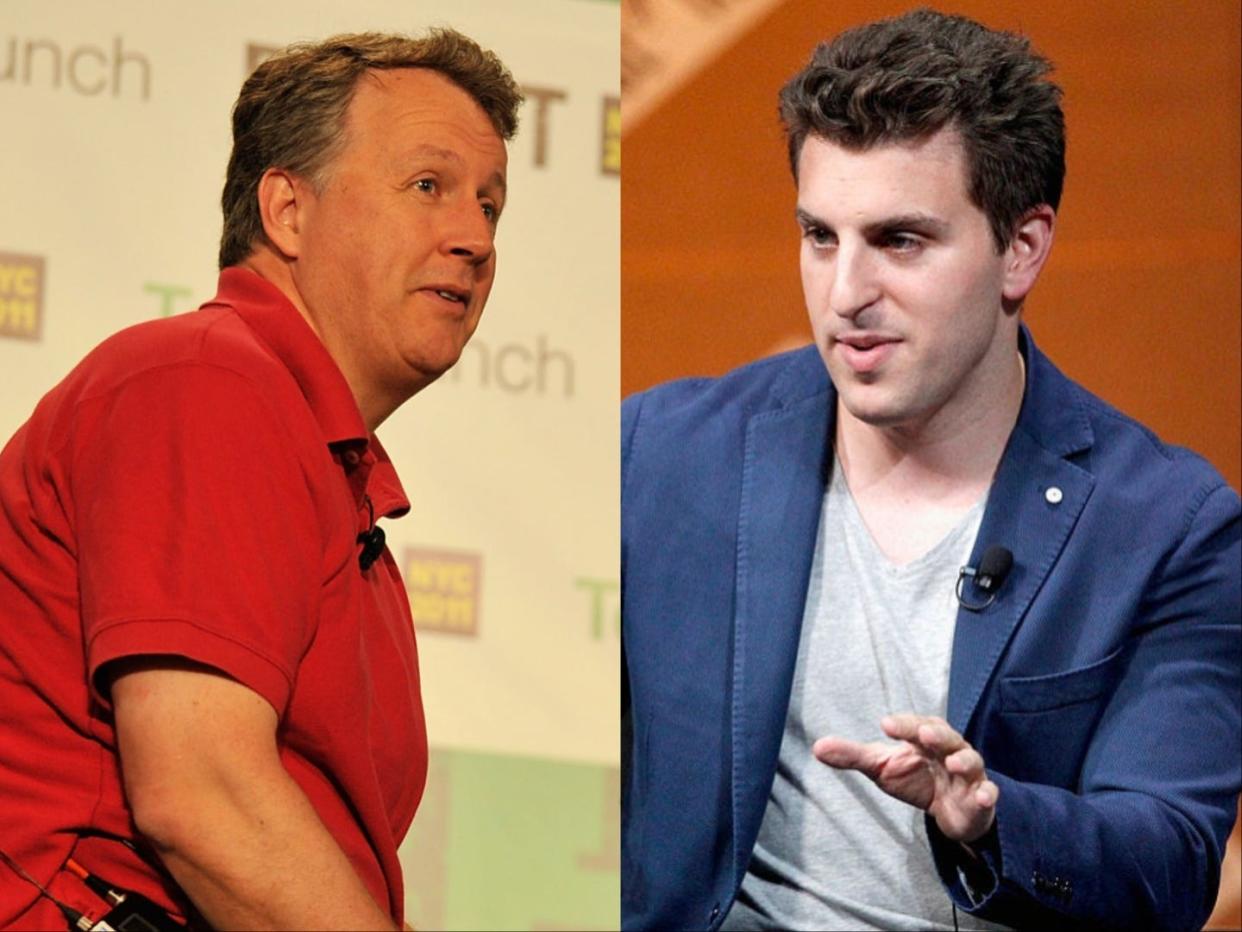Why everyone in tech is talking about 'founder mode'

Paul Graham's essay on "founder mode" versus "manager mode" sparked conversation, memes, and merch.
Graham's essay, inspired by Airbnb's CEO, Brian Chesky, critiques traditional startup advice.
Graham argues that instead of delegating, founders should stay involved as their startups scale.
As the internet puts brat summer to bed, founder mode is taking center stage.
On Sunday, Paul Graham, a writer and founding partner of the startup accelerator Y Combinator, published a 1,050-word essay that took tech and business communities by storm.
He asked: Why are startup founders directed to run their large companies like managers, delegating to their direct reports, rather than getting involved as they did in earlier stages of their companies?
Graham argued that operating in "manager mode" over "founder mode" is anathema to companies.
"What this often turns out to mean is: hire professional fakers and let them drive the company into the ground," he wrote.
A prime example of a tech titan embracing founder mode is Jensen Huang, Nvidia's cofounder and CEO, who has 60 direct reports and still eats in the company cafeteria.
Graham credited Brian Chesky, Airbnb's cofounder and CEO, with sparking the idea and most of the arguments in the blog. At a recent Y Combinator event, Chesky argued that conventional advice on building and scaling up a startup is broken. He said, as he has before, that investors and outside managers just don't have the insights that founders do. He said that splitting a company into organizational tiers — isolating founders from anyone but their direct reports — often kills the business.
While belittling manager mode might shock management consultants, Graham's post tracks with Silicon Valley's modus operandi. Tech culture has always venerated founders and lean teams. Venture capitalists try to outdo each other in funding rounds to appear the most "founder friendly" — investors who won't meddle much. Would-be founders dream of the day they can peel away from drab Big Tech and start their own Next Big Thing, unconstrained by bureaucracy.
And it's a long weekend with little else going on online. The internet craves buzzy nomenclature and the chance to rake in the likes with a viral follow-on post.
'Gaslit' founders
Chesky's talk hit another nerve with the founders in the room and then with Graham's readers. The Airbnb exec said founders were constantly being "gaslit" — first by outside voices asking them to run the company as managers, and then by employees who don't like the manager's way.
Chesky is the only remaining Airbnb cofounder at the company, and while much of his leadership has been praised — he led a major round of pandemic-era layoffs with empathy and has tried to refocus the hospitality giant — the stock has fallen by more than 15% since its 2020 initial public offering.
There are also notable exceptions to positive founder mode: Sam Bankman-Fried and Elizabeth Holmes were both founders who operated with autonomy, then ignominy.
On the other hand, Satya Nadella and Tim Cook are both outside managers touted as turning their companies around — in both cases building on the legacies of strong founders.
Thinkfluencers' time to shine
Graham's essay brought Chesky's speech outside the YC room and into the rest of the world. Now, investors, wannabe thinkfluencers, comedians, and founders are weighing in.
Baron Davis, a basketball star turned investor, likened being a founder to being an athlete.
The best athletes have been on that ‘founder mode’ from day one. Every season, we’re out here building our game, helping the team, our brand, our legacy, adapting and staying resilient.
Startup founders are more like athletes than they think. It’s all about that grind, staying…— Baron Davis (@BaronDavis) September 3, 2024
Another investor gave one of the tastiest examples of founder mode: Costco's deal of the century, which has withstood inflation thanks to one cofounder's clear instructions to his CEO: If you raise the price of "the effing hot dog, I will kill you."
founder mode is keeping the hot dog at $1.50 no matter what
— Turner Novak 🍌🧢 (@TurnerNovak) September 2, 2024
A tech-newsletter writer depicted what dating a tech bro might look like this week.
it’s called “founder mode” it’s about how to run your company as a founder and how that often goes against traditional management practices. it’s basically what i already do but paul graham created a cool name for it in his latest essay. you know who paul graham is? y combinator? pic.twitter.com/rMKo9iGk6P
— sophie (@netcapgirl) September 2, 2024
Some rang warning bells about what's next for Tech Discourse now that founder mode is officially a hit.
founder mode is starting to make it to linkedin, this week will be hell
— arsham (@arshamg_) September 3, 2024
Saying a prayer for everyone going to work after Labor Day weekend after the Paul Graham Founder's Mode post
— Bessie 🇹🇼🇺🇸 (@bessiec) September 3, 2024
Custom domains have been purchased.
And of course, unofficial merch has already dropped.
Damn ! Some smartass quick fox 🦊 just booked https://t.co/ZPxPdB59G4 before me 😏 #Foundermode mania . Btw! If you want to place bulk order for this printed cap #HMU 📱 pic.twitter.com/Z4IXiSqW6w
— Subh⚡ 🚀 (@subh10) September 2, 2024
Read the original article on Business Insider






